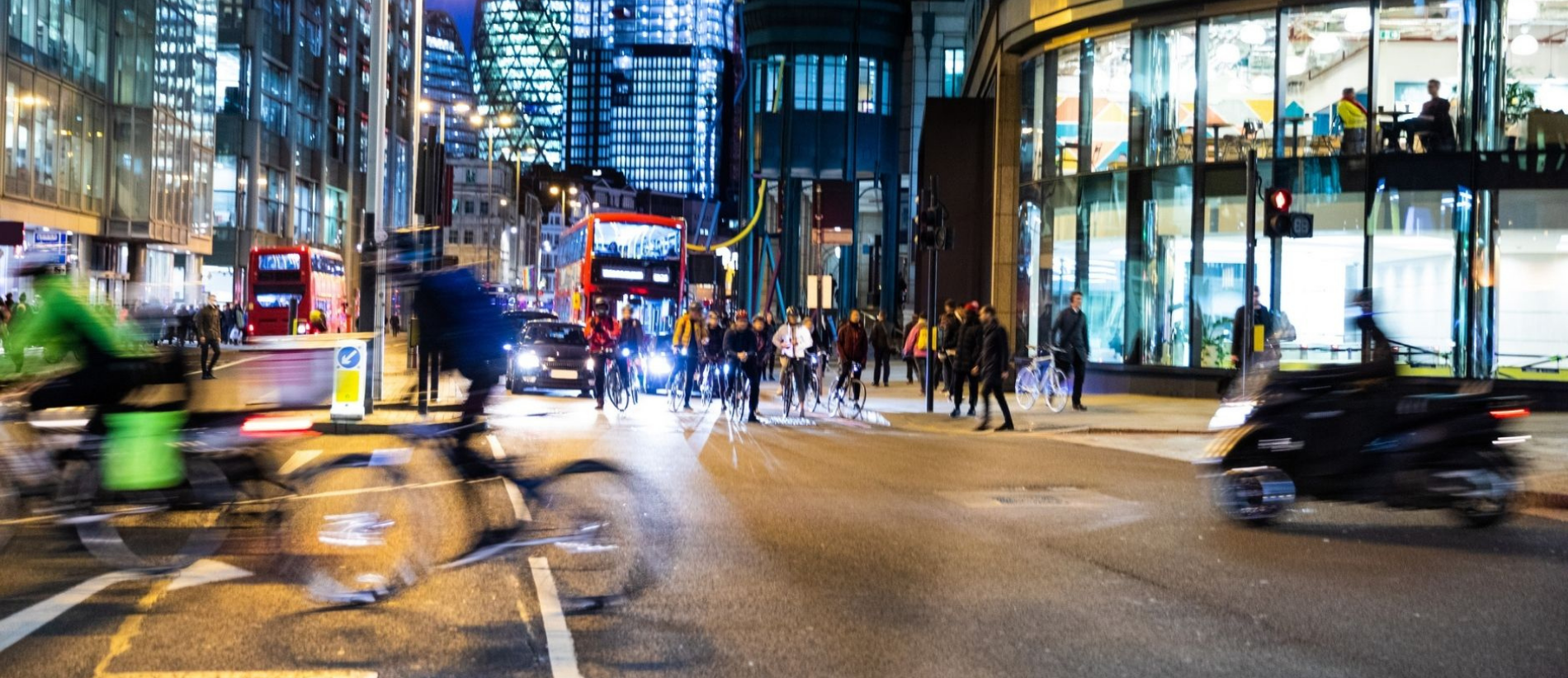The number of e-bikes, e-scooters, pedestrians and cyclists has increased substantially during the Covid-19 pandemic, raising the risk of accident for fleet operators. Companies can address this heightened threat through new training programmes and technology upgrades.
Change in behaviour
Individual transportation has boomed during the pandemic as people shunned public transport due to fear of catching Covid-19. Together with a growing popularity of outdoor exercise such as walking or jogging, cars and heavy goods vehicles (HGVs) are having to deal with a much higher number of so-called “vulnerable road users” than before the virus outbreak.
The changed behaviour in the population has shifted the composition of road users to such an extent that the UK’s Department for Transport decided to propose a new Highway Code (opens a new window) that is set to introduce a hierarchy of road users in the UK, placing the highest responsibility on those who can do the greatest harm.
As a result, motorists and HGV drivers face greater responsibility towards other traffic participants. This is further raising the risk for fleet operators of their drivers being involved in traffic incidents, which can not only cause substantial damage to the company’s brand and reputation but also, in a worst case scenario, can cause deadly accidents.
Additional training
Not least because many of the new road users may be inexperienced riders, drivers working for fleet operators should undertake new training courses that help raising awareness of the increased numbers of vulnerable road users as well as exploring additional safety protocols.
In order to give the population more space during lockdown, many city mayors have expanded pedestrianised zones, closed roads for through traffic or narrowed the space for cars and trucks, while building out the bicycle lane network. Consequently, cars and trucks have had their space reduced and are sharing roads with many more vulnerable road users, increasing the potential for conflicts. Driver training should therefore also include conflict resolution and de-escalation techniques. Drivers are often the face of fleet operators in the public eye.
One option that can give fleet operators more peace of mind is the Fleet Operator Recognition Scheme (FORS) (opens a new window), a voluntary accreditation scheme for fleet operators which aims to raise the level of quality within fleet operations, and to demonstrate which operators are achieving exemplary levels of best practice in safety, efficiency, and environmental protection.
Supporting technology
Upgrading HGVs to include the latest technology and supporting drivers in densely populated areas may be another opportunity to avoid accidents and conflicts with other traffic participants. To drive in central London (and eventually in other regions of the country), for example, new regulation stipulates (opens a new window)that an HGV now needs to have a sensor system fitted to the nearside of the vehicle that alerts the driver to the presence of a vulnerable road user. Also, the HGV needs to have an audible vehicle manoeuvring warning fitted to warn vulnerable road users when a vehicle is turning left. In addition, a fully operational camera monitoring system needs to be fitted to the nearside of the vehicle.
Retrospectively, CCTV images can also help resolve conflicts and clarify liability after an accident. It can also serve as a learning tool for both HGV drivers as well as vulnerable road users to reduce the likelihood of traffic accident.
Raising awareness
Engaging in community education and awareness events to actively promote road safety may be another useful opportunity to promote safety in traffic. Tarmac, a logistics company, has been working with local police and cycling communities in “Exchanging Places” events, which provide the opportunity for people to sit in the cab of an HGV vehicle and share experiences of being on the road.
The changed behaviour of the population triggered by the pandemic is likely to prevail as people retain some aspects of their routine they have learned to enjoy also in the aftermath. It is therefore likely that the challenges for fleet operators will persist for longer, and investments in reducing their risk exposure are therefore likely to pay off.


